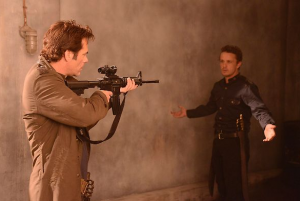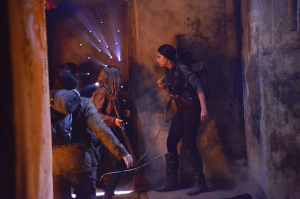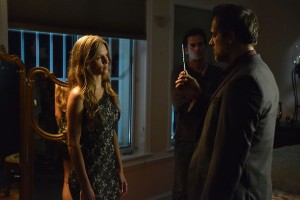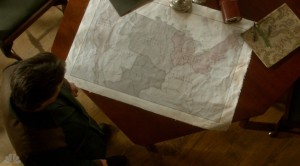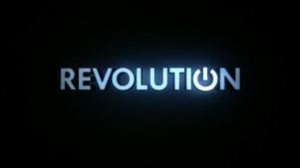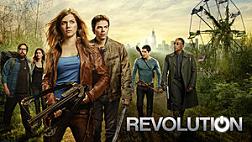Revolution – “Nobody’s Fault But Mine”
“Miles, you’re like a bad penny, man.”
Leave it to Mark Pellegrino to make that line work.
The guard of the Monroe Republic, officers and soldiers alike, have been fed a lot of terrible things over the season but, with casting like Pellegrino, Giancarlo Esposito, and David Lyons masking some terribly cheesy dialogue all season, the swing from the cast of the bad guys to the cast of the good guys is like watching a play on Broadway and stepping out to watch 6th graders act out Book of Mormon.
Maybe that’s a little hyperbolic but you can see what I mean watching this show. It seems unfair of the acting power they have in Philadelphia while Billy Burke Han Solos his way across the countryside, being towed along by Tracy Spiridakos (who has totally mastered that frightful sideglance), Daniella Alonso (honestly, how do you deliver that “Maybe because he tried to kill him line” and not sound like the worst?), Zak Orth (who’s doing okay playing a part that’s perfect for Bad Robot player Greg Gruneberg). It’s not that these people are especially terrible but they’re parts are so cornball and overdramatic that the people playing the whisper-growling, stoic villains get the better end of the weak-writing stick, particularly with their unbalanced strength of cast.
I think that was especially true for this final episode until Sargent Strausser opened his dang, pervy mouth.
- November 27, 2012
- Nick
- Episode Review
- Fall Finale, Revolution


